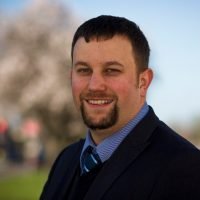The Mandela I Knew

“Resentment is like drinking poison and then hoping it will kill your enemies”
— Nelson Mandela
What a great thing to be able to say you met Mandela – I never had that opportunity, but have met people who have. My wife has an uncle who did a photo shoot with Mandela soon after he left office, and as we have heard, he was struck by this gracious man who laid aside power.
However, rather than to talk about Mandela, I want to write about some of the things he came to represent and what I have found in others. The radical way Mandela responded to the wrongs that were done to him is his most powerful legacy. This reminds me of a hero of my own. Like Nelson Mandela, Richard Cole was born in an African Village, a son of the chief. After an eventful early life, he became a pastor in Liberia and Sierra Leone. When the civil war in the 1990s overran that part of West Africa, he was stuck in England where he had travelled to learn about agricultural projects. This was the summer of 1990, which was when I met him for the first time. In fact, my first memory of Richard was at a water park, at the top of a water slide, where he decided he did not want to go down the chute. It’s funny to think back of his timidity then, when this is the man who so readily went into rebel areas to rescue people in Sierra Leone.
There are many stories of Richard’s adventures in war-torn Sierra Leone; capture by rebels, attempted execution. The message from Richard’s life is one of forgiveness. He was asked by the authorities to start a home for boy soldiers. It was featured in a report by Jeremy Vine (BBC report). It is called the Nehemiah Project and is now run by Richard’s son, PJ Cole, with a leadership team of former boy soldiers. Richard’s approach was very simple: each boy taken into the home had an ‘induction’ where they stayed with Richard and his family for a week. Then they would be given a place at the home and each older boy had a younger boy to look after to foster a sense of community and responsibility.
Recently, Louise Casey – who heads up the Troubled Families unit for the UK Government – was asked about what interventions make the most difference for the most complex family cases in Britain. She was very clear that complex programmes and initiatives cannot replace the need for ‘love and care’. The approaches that result in professional distancing and jargon, cannot make up for genuine empathy, care and love.
The close proximity that Richard set up with his induction process, was put to the test when one boy arrived at the home, who had been one of the rebels who had killed Richard’s own grandfather. As we can all understand, this was not an easy situation but Richard yet again tapped into his faith, to enable his to forgive and accept this boy alongside the others in the home.
Richard sadly died of cancer in 2006, but it’s a testament of his work that those who had been taken as children into the rebel army forced to do horrendous things, are now part of the future of Sierra Leone.



